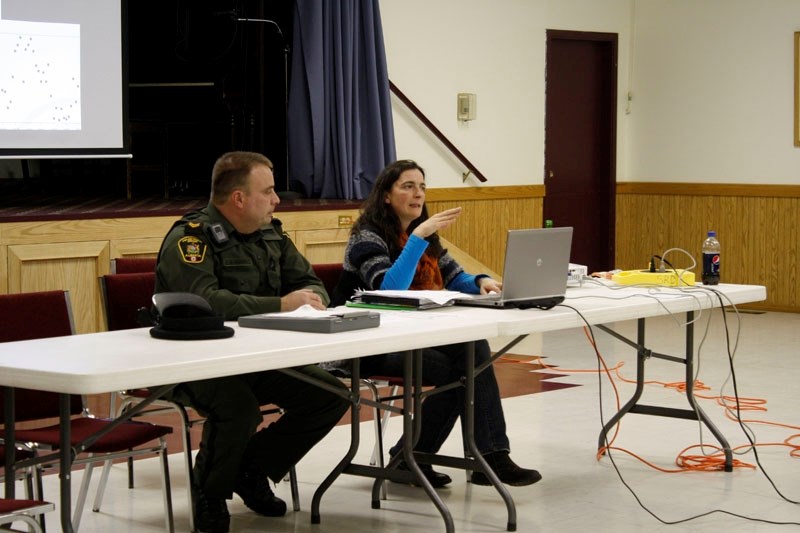The excessive amount of snowfall this winter has affected wildlife populations in the area, according to officials.
"With the large amount of snow in years like this year, we would expect a higher mortality than usual, just because the animal can't move,î said Chiara Feder, wildlife biologist.
"They cannot paw through three or four feet of snow and so the availability of food is very limited and the availability for them to move from one spot to another is limited again by the amount of snow.î
It's mainly deer that are affected by deep snow, but elk and moose are affected as well.
"Deer, elk and moose, everything has trouble. But a moose might have less trouble than a deer,î she said.
"With the last couple days being so warm, it forms a crust (on top of the snow) and so if they can stay on top of the crust it's good, but if they can't stay on top of the crust they are at risk of injuries and that kind of stuff.î
The deep snow also causes deer and other wildlife to venture into towns because the snow melts faster in town and it is easier to find food.
The issue was discussed at the annual post-hunting season Sundre Trappers Association and Sundre Fish and Game Association meeting, held at the Sundre Legion Hall on Jan. 15.
Other items on the agenda included wildlife damage compensation, sheep population, elk in the Ya Ha Tinda, moose, bison, and how predators affect wildlife populations.
"We saw a fairly big number of sheep last year and the proportion of trophy sheep was in the ranges of a population that is what's considered a normal, more sustainable range of trophy sheep,î noted Feder.
"We haven't had those kind of numbers since the '90s so that was something positive.î
The purpose of the meeting is to provide an opportunity for members of the associations to provide insight, ask questions or suggest changes in management, she said.
"It's a great opportunity to listen to concerns, to discuss possible changes, to complain about something that might not be right, but also to provide insight into the solution,î she said.
She believes the meeting has been held annually for at least six years.
"Until a couple of years ago they (members of the associations) would just complain without really providing solutions or without really having a discussion,î she said.
"But I think in the past four or five years we really came to a point where there are complaints and there are things they would like to change, but at the same time there is much more of a constructive exchange, not just complaints.î



